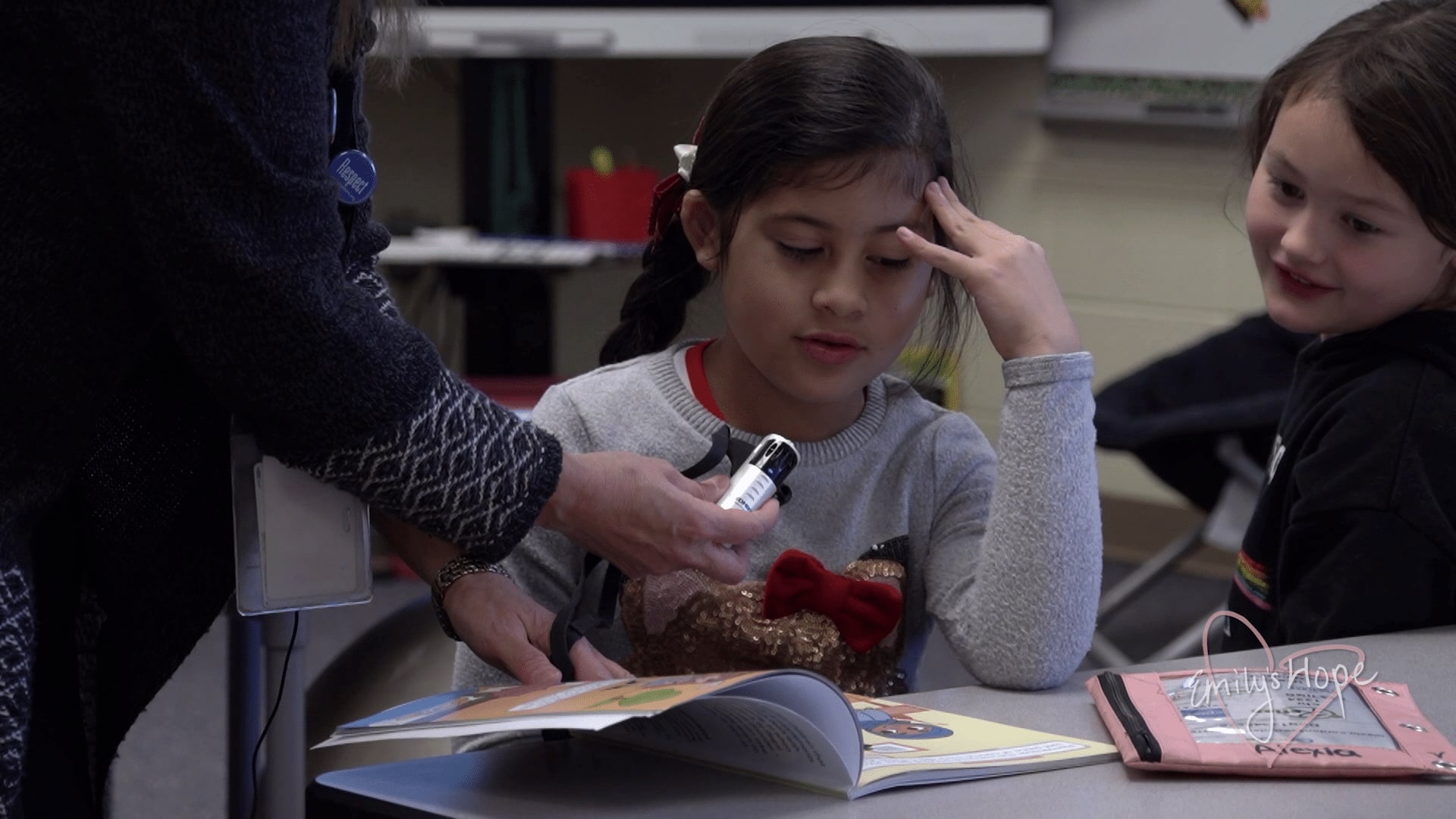Donate now to provide a book to every student in the classroom.
The Emily’s Hope Addiction Prevention Curriculum is being piloted in nine classrooms with third and fourth graders. Our K-12 curriculum is designed to teach children the effects of substances on the brain, body, and life in order to promote healthy choices.
Our lessons address the science, social, and health aspects of substance use, dealing with difficult emotions, and the entire family’s wellness. Our team of medical, education, and addiction specialists are committed to providing tools for schools to reduce the number of overdose deaths in the United States.
“I think emotional health is a huge need,” said Marie Atkinson-Smeins. “They drew a picture of the weather and they related it to a feeling.”
Atkinson-Smeins has been a school counselor for 34 years.
“Just being in education as long as I’ve been in it, you, you’ve seen what is happening to families, to our society. There’s people that end up dying from drugs,” she said.
That’s why Mrs. Atkinson-Smeins is piloting the Emily’s Hope Prevention Curriculum for third graders in the classroom.
“It covers drugs and it covers alcohol, but it’s talking about your choices and, and your brain,” she said.
Every lesson starts with a song.
“I like the song [because] it’s really catchy. And the kids like it,” Atkinson-Smeins said.
“The pictures of videos, the music. I like the song,” third-grade student Serenity said.
This rich prevention curriculum includes a children’s picture book.
“I pass the book around and I have different kids read so they can take turns,” Atkinson-Smeins said.
“I like the books and the pictures in it, and I like the songs and the videos,” said third-grade student Addilyn.
Characters that kids can identify with teach them important lessons on how to keep their bodies and brain safe.
“We have to educate kids at their level,” Atkinson-Smeins said.
Emily’s Hope CEO and founder Angela Kennecke talked with students in Luverne, Minnesota.
Kennecke: And what did you learn?
Serenity: “I learned that taking drugs will make you feel different and you won’t feel the same. And it won’t make you happy. It’ll make you upset and angry.”
“A lot of them say, well, I’m not gonna take drugs, or, but then they say other things too, like, you know, I wanna eat healthy, I wanna drink water, I wanna exercise, I wanna sleep. So I think it’s just, It’s not just about drugs, it’s about being like a whole healthy person.”
“I learned not to take… medicine from other people and don’t take drugs, but you think you’ll change your life and you’ll be happy, but it never will,” said third-grade student Callum. “Just make your life a huge, big mess.”
“I just hope that they learn to make good choices in life,” Atkinson-Smeins said. “And that they think about each choice that they make is going to affect them. Like their brain, physical health, and their emotional health.”
Vital lessons these children will take with them as they move beyond elementary school.
Learn more out the education curriculum.
